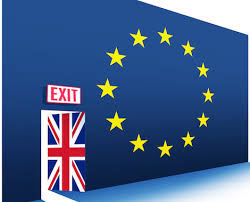How a Brexit Could Affect Online Gaming
 Much news and economic analysis has been devoted to the question of whether or not the citizens of the United Kingdom will vote to leave the European Union on June 23rd. As a general rule, the consensus among economic experts has been that a Brexit would be mildly harmful to Britain’s export markets. However, every industry has its own unique set of driving factors that could be affected in the event of a Brexit. One of the industries that has received the least attention in the light of a possible exit from the EU has been Britain’s large and popular online gaming industry.
Much news and economic analysis has been devoted to the question of whether or not the citizens of the United Kingdom will vote to leave the European Union on June 23rd. As a general rule, the consensus among economic experts has been that a Brexit would be mildly harmful to Britain’s export markets. However, every industry has its own unique set of driving factors that could be affected in the event of a Brexit. One of the industries that has received the least attention in the light of a possible exit from the EU has been Britain’s large and popular online gaming industry.
Though the data is somewhat incomplete, most estimates suggest that slightly more than 5 percent of British adults participate in online gaming on UK casinos a regular basis. Given this large demographic market, the online gambling industry in Britain is one that deserves serious scrutiny as a business with major economic status. At present, trade agreements with other EU states allow gaming businesses that are regulated in the UK to operate throughout the EU and vice versa. In the event of a Brexit, however, this regulation agreement could be broken.
The primary deciding factor regarding whether a Brexit would be good or bad for the UK’s gaming industry is what trade conditions would look like afterwards. Some have suggested that Britain may be able to establish a free trade agreement with the European Union, even after exiting, in order to replicate the current market conditions. This, however, would be a less likely possibility than the creation of other free trade agreements that play to the UK’s significant non-European export markets. Such trade agreements, however, generally only affect tariffs on exported and imported physical goods. As a rule, exchanges of financial service and gaming regulatory standards, such as is currently in place inside the EU, are not typical of free trade zone agreements. This means that, while other industries could have better prospects, the online gaming industry in Britain would almost certainly take a major loss.
The participation rate of European gamblers varies with the type of gaming and with the bookmaker in question. However, some bookmakers have reported customer shares of up to 10 percent in Europe. In these cases, the customers lost in Europe in the event of a Brexit would have to be made up elsewhere in order for these firms to maintain their current level of profitability. Unless Britain is able to institute new agreements that keep trade conditions between itself and the EU unchanged, the online gambling industry is very likely to lose most or all of its European customers, as EU-based bookmakers will be able to continue to offer services without the expense of navigating the EU’s protectionist economic policies.
While a Brexit may only be mildly negative for the manufacturing sector, service industries, such as online bookmaking, are likely to be more negatively affected. At present, early polling suggests that a majority of British voters are inclined toward voting against leaving the European Union. While issues of sovereignty have been discussed as a reason for leaving, economic concerns thus far seem to be the more important issues to the voters of the United Kingdom. Whether or not those who support an exit from the union will be able to sway the voters remains to be seen, but it is fairly clear at this point that the economic effects of a Brexit, especially on industries such as online gambling, would be generally negative.